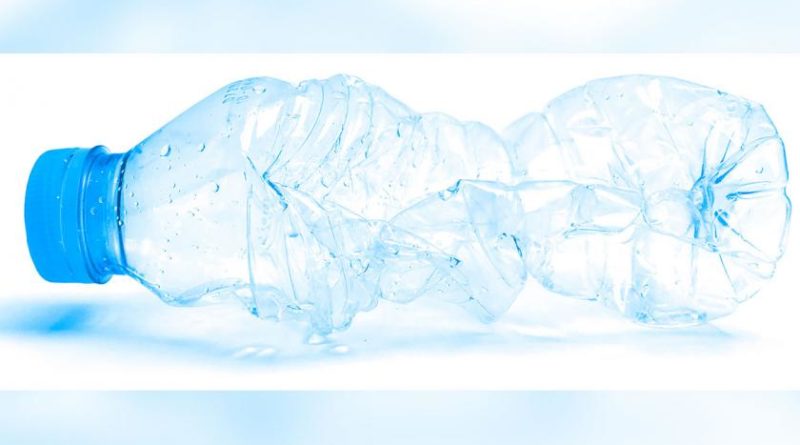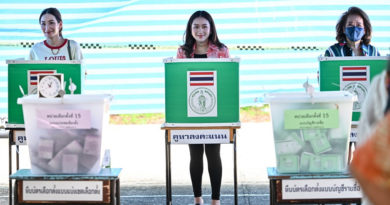OP-ED Biz-Editorial: Businesses should reduce plastic use to secure a greener, better Myanmar
Today is the World Environment Day and this year the theme is “Beat Plastic Pollution”. Businesses in the country need to take concrete steps to help achieve a greener, cleaner Myanmar.
Plastic pollution is not an abstract concept. This year alone, global manufacturers will produce an estimated 360 million tonnes of plastic, which is projected to nearly double in the next 10-15 years. The most common single-use plastics found in the environment include cigarette butts, plastic beverage bottles, plastic bottle caps, food wrappers, plastic grocery bags, plastic lids, straws and stirrers and foam takeaway containers, among others. The Asia-Pacific Economic Cooperation (APEC) estimated that the economic impact of marine plastics to the tourism, fishing and shipping industries in that region alone has reached US$1.3 billion.
This should come as no surprise. In Myanmar, plastic waste puts tourists off in Ngapali, they are a blot on the landscape in Bagan and they are the source of Yangon’s toxic landfill fire.
The notorious fire at Htein Bin landfill, polluting large swaths of Yangon city in burned plastic stench, is a wake-up call for industries, conglomerates and small and medium-sized enterprises (SMEs) to eliminate the use of avoidable plastic waste. This means working with employees, partners, suppliers, clients and stakeholders to promote greener options and make greener decisions.
The Myanmar Times applauds the efforts made by members and founders of Thant Myanmar, a grassroots movement fighting plastic pollution in the country. Their endeavours to raise awareness, engage and involve different sectors, stakeholders and the media are essential in gearing up for the World Environment Day today.
As Thant Myanmar member Hanna Helsingen rightly pointed out in an opinion article last week, while the issue of plastic pollution needs to be addressed at the policy level, it is clear that we can all start by changing the way we use and discard plastic. Meanwhile, the private sector is crucial in this regard in spearheading sustainable solutions. The first step for individual businesses is to reduce the use of single-use plastic and switch to alternatives.
Thanks to the Myanmar Centre for Responsible Business (MCRB), some hotels now are offering “green meeting” packages while others have stopped the use of plastic water bottles. Meanwhile, restaurants, including Union Bar and Grill, Locale, Gekko and Paribawga Café have embraced the campaign to eradicate the use of plastic straws. This initiative is commendable but by no means the end game – much more has to be done in the battle against plastic pollution. This newspaper is fully behind the campaign to go green.
The MCRB has recently published some “green” guidelines for businesses when hosting meetings and events. This newspaper believes that those suggestions can save energy, reduce plastic use and enhance use of locally sourced material. The guidelines are as follows:
 Thant Myanmar is a grassroots movement fighting plastic pollution in the country. Photo – Supplied
Thant Myanmar is a grassroots movement fighting plastic pollution in the country. Photo – Supplied
Businesses should request the venue to:
1. Minimise use of plastic bottles by providing drinking water in refillable glass bottles or jugs on tables. These should be refilled from a reusable gallon bottled water container. If insufficient jugs are available, put a water dispenser and glasses in the meeting room. An accompanying notice on the table by the jugs should reassure guests that this is not tap water e.g. “We are seeking to reduce our use of plastic. This water container is filled from a safe, refillable container from a certified bottled water supplier.”
2. Avoid use of sweets or snacks which are individually wrapped by plastic. Table snacks such as dried mango or paper wrapped sweets are preferable, ideally locally sourced. Use locally produced seasonal and/or organic food and beverages when possible.
3. Minimise stationery wastage: use recycled paper, and pencils rather than plastic disposable pens; collect leftover hotel stationery from delegates’ tables for reuse in the next event.
4. Minimise usage of linen in order to save water and energy.
In addition, air conditioning should not be set at less than 20C and hotels should shut blinds, turn off lights, and turn down the heat/air conditioning when rooms are vacant. Decorations and display materials should be reusable and/or are made out of recycled materials. Coffee and tea mix packets, should not be used. Milk should be supplied in a jug, and sugar in a bowl, not individual packets, to reduce litter.
For accommodation, transport and other arrangements, businesses are encouraged to:
1. Organise accommodation for participants at the event venue or within walking distance of the venue to reduce carbon emissions from transport.
2. Arrange collective transport to reduce costs and emissions for meetings outside Yangon.
3. Provide as much as possible (invitations, background information, handouts etc), electronically, by email, memory sticks or website download.
4. Use double sided, two pages per side, reduced ink printing for printed handouts.
5. Avoid laminating or using plastic folders when distributing attendance certificates and handouts.
6. Avoid plastic gifts, plaques, statues and framed items which have no usefulness.
In addition, VIP and thank you gifts should be useful to the recipient and ideally carry a “Reduce, Reuse, Recycle” message. Examples include branded bamboo reusable coffee cups, refillable water bottles and reusable bags./ 05 JUN 2018
 All photographs, news, editorials, opinions, information, data, others have been taken from the Internet ..aseanews.net | [email protected] |.For comments, Email to :D’Equalizer | [email protected] | Contributor.
All photographs, news, editorials, opinions, information, data, others have been taken from the Internet ..aseanews.net | [email protected] |.For comments, Email to :D’Equalizer | [email protected] | Contributor.









